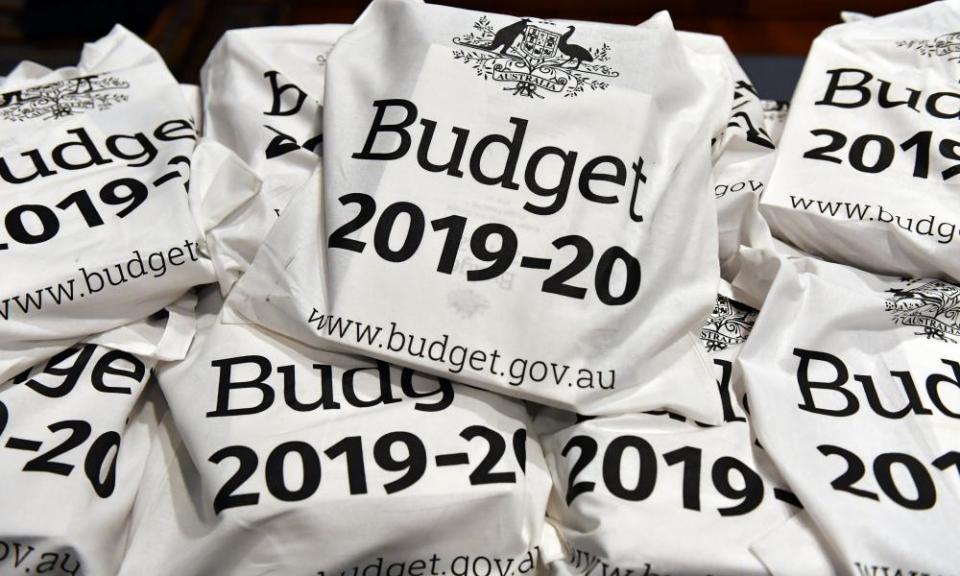After Covid, there's no getting excited about budget predictions

It is rare to experience a moment when the entire way the political and economic debate is reported changes, but we are in such a moment. The Parliamentary Budget Office’s updated fiscal scenarios put to rest the absurd level of attention given to the budget balance outcomes or debt levels. The pandemic has rendered such reporting rather farcical.
The general coverage of the annual government budget has always been a bit of a mug’s game. Journalists are locked up together, allowed only to get the views of the government and given a few hours to attempt to discern masses of numbers in which much is hidden and confused.
And there has for many years now been a belief that we need to quickly rush to find the estimates of the budget balance.
Related: 'Bumpy' road to recovery as Treasury tips unemployment rate to top 13% by end of the year
I am not innocent of such things – although I have always fought against placing too much care on the number. As we have also long known, such numbers are rarely set in anything like stone.
But it was always quite laughable just how much governments and some in the media thought such things mattered.
Consider that the 2018-19 budget was viewed as a triumph because the government was now predicting a budget surplus in 2019-20 of $2.2bn – compared with its prediction six months prior of a deficit of $2.6bn.
Nearly a $5bn turnaround! This in a budget where government revenue was around $485bn, and in an annual economy that produced nearly $2tn worth of output.
It was a laughably small amount that would have a negligible impact on the broader economy one way or the other, and yet it was the type of thing that could generate headlines.
And that $2.2bn surplus? Now the PBO and the Treasury estimate the past financial year was a deficit of $90bn, and this current year will be a $183bn deficit:
Oh for the days when we could get excited by a $5bn change.
But it is not just the size of the deficits over the next couple years that should see everyone look at the government budget differently; it is what the PBO predicts we have in store for the next decade.
Related: With Covid comes the opportunity to shift Australia's economy away from fossil fuel | Greg Jericho
The PBO’s baseline estimate for budgets out to 2029-20 has the smallest deficit of $29bn occurring in 2027-28 – barely below what it was in 2016-17. Now, admittedly by then our GDP will be bigger than it was four years ago, but even still we are looking a deficit of at least 1.2% of GDP:
Now the PBO does have an “upside” estimate based on stronger GDP growth over the next decade, but even that would see the deficit at one point over the next decade be only as low as 0.9% of GDP.
One of the good things about the PBO’s estimates of the budget over the next decade is they show just how greatly the budget balance is (as it always has been) determined by revenue.
Aside from last year, and the current one with the massive increases in government spending due mostly to jobkeeper and jobseeker, the overwhelming reason for the budget deficits out till 2030 is less revenue:
And the big collapse is due mostly to less personal income tax:
But what is perhaps most interesting about the predictions for the future is that the PBO is as yet unable to account for any new spending commitments that might occur in the October budget. As it is, after this current financial year the biggest change to expected expenditure is the increase in debt repayments:
But even here we see the absurdity of previous coverage and concern about debt. Even at it biggest, we expect to see an extra $14bn in annual debt repayments in 2029-30. A sizeable amount, no doubt, but less than the government budgeted to spend on private schools in 2022-23.
Not a bad amount to keep people and some businesses financially afloat while a pandemic ravages the world.
Related: Australia's 'deficit bad, surplus amazing' mantra should finally be binned | Greg Jericho
But the most important aspect of the PBO’s report is not the budget, but its estimates for GDP growth. Using estimates from the Reserve Bank, the PBO’s figures largely agree with those I calculated earlier this month.
Crucially, the PBO estimates that because of lower net immigration and current restrictions on international travel, the potential size of our economy is now lower than it was prior to the pandemic.
The PBO assumes that net immigration will not be increased in later years to make up for the decline occurring now, and as a result even under the best-case scenario the PBO expects our economy to be some 1.6% smaller at the end of this decade than previously anticipated:
The estimates show just how long the recovery will take. Even under the best outcome, within five years our economy will still be around 3% smaller than we would have expected – around $60bn worth of production in today’s money – roughly the entire amount contributed to the economy by the administration and support industry.
The PBO estimates show that the budget deficit/surplus debate is now dead. Let us not mourn its passing. But the PBO also shows that, even with the best outlook, the recovery is going to be long. At least we might now focus on that, rather than estimates for budget balances that have little relationship to the reality of people’s lives.

 Yahoo Finance
Yahoo Finance 